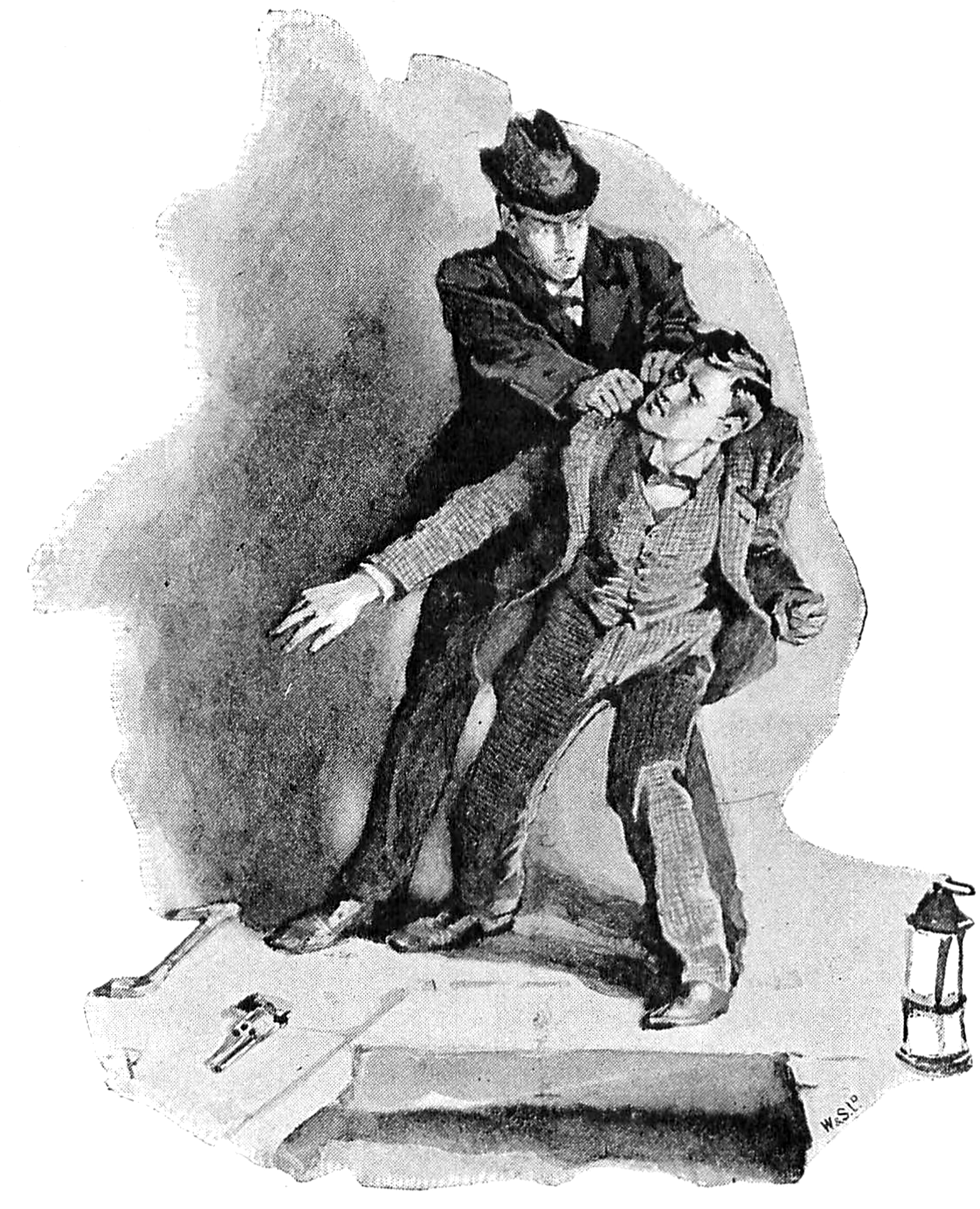weather, as we followed them from the cellar, "I do not know how the bank can thank you or repay you. There is no doubt that you have detected and defeated in the most complete manner one of the most determined attempts at bank robbery that have ever come within my experience."
"I have had one or two little scores of my own to settle with Mr. John Clay," said Holmes, "I have been at some small expense over this matter, which I shall expect the bank to refund, but beyond that I am amply repaid by having had an experience which is in many ways unique, and by hearing the very remarkable narrative of the Red-headed League."
"You see, Watson," he explained, in the early hours of the morning, as we sat over a glass of whisky and soda in Baker-street, "it was perfectly obvious from the first that the only possible object of this rather fantastic business of the advertisement of the League, and the copying of the 'Encyclopædia,' must be to get this not over-bright pawnbroker out of the way for a number of hours every day. It was a curious way of managing it, but really it would be difficult to suggest a better. The method was no doubt suggested to Clay’s ingenious mind by the colour of his accomplice’s hair. The four pounds a week was a lure which must draw him, and what was it to them, who were playing for thousands? They put in the advertisement, one rogue has the temporary office, the other rogue incites the man to apply for it, and together they manage to secure his absence every morning in the week. From the time that I heard of the assistant having come for half wages, it was obvious to me that he had some strong motive for securing the situation."
"But how could you guess what the motive was?"
"Had there been women in the house, I should have suspected a mere vulgar intrigue. That, however, was out of the question. The man's business was a small one, and there was nothing in his house which could account for such elaborate preparations, and such an expenditure as they were at. It must then be something out of the house. What could it be? I thought of the assistant’s fondness for photography, and his trick of vanishing into the cellar. The cellar! There was the end of this tangled clue. Then I made inquiries as to this mysterious assistant, and found that I had to deal with one of the coolest and most daring criminals in London. He was doing something in the cellar—something which took many hours a day for months on end. What could it be, once more? I could think of nothing save that he was running a tunnel to some other building.
"So far I had got when we went to visit the scene of action. I surprised you by beating upon the pavement with my stick. I was ascertaining whether the cellar stretched out in front or behind. It was

